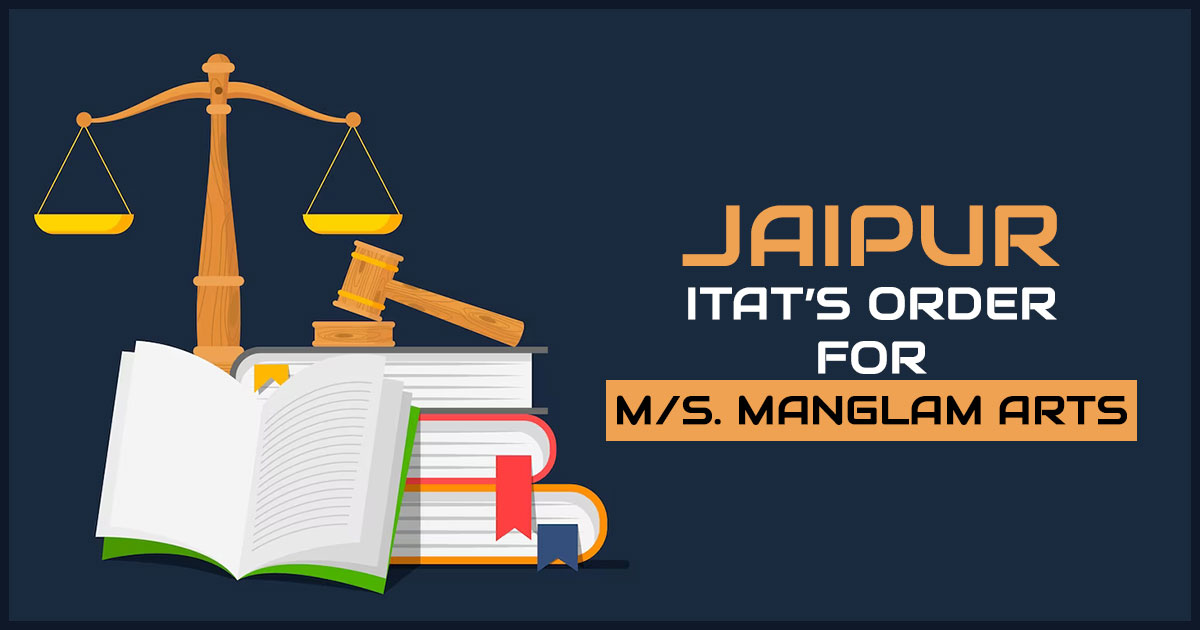
The late payment of Tax collection at source (TCS) and Goods and Services Tax (GST) does not constitute a penalty and should, in fact, be eligible for deduction under Section 37 of the Income Tax Act, 1961, the Jaipur bench of the Income Tax Appellate Tribunal (ITAT) recently ruled.
The taxpayer involved in this case is engaged in the business of manufacturing and exporting wooden handicrafts, durries, rugs, textile items, and more. They had initially declared a total income of Rs. 31,43,91,380.
However, the Principal Commissioner of Income Tax (PCIT) proposed disallowing an amount of Rs. 46,666/- on account of fines and penalties.
The Authorized Representative argued that during the assessment proceedings, the taxpayer had submitted audited financial statements, tax audit reports, and a computation of income. Notably, in the profit and loss account, the taxpayer had already accounted for an amount of Rs. 2,66,946/- under the category of ‘fine & penalty.’
The tax auditor, using Form 3CD, reported a disallowance of Rs. 2,22,280/-, which was then included in the computation of the taxable income. This demonstrates that all the necessary information and documents were provided to the Assessing Officer during the assessment process, and the Assessing Officer accepted the disallowance as made by the taxpayer.
It was further argued that during the course of proceedings under section 263, the taxpayer explained that the remaining amount of Rs. 46,666/- comprised Rs. 3,167/- as late fees for TCS return, Rs. 4,690/- for late fees of GST return, and Rs. 38,809/- as interest on late deposit of provident fund/contribution.
The Authorized Representative of the taxpayer also cited a decision from the Karnataka High Court in the case of Mysore Electrical Industries Ltd. 196 ITR 884, where it was established that interest paid on delayed contributions under the Employees Provident Fund Act does not qualify as a penalty and is thus admissible as a deduction.
In conclusion, the Rs. 46,666/- in question does not constitute a penalty. The Principal Commissioner of Income Tax (PCIT) incorrectly asserted that it should be disallowed under Section 37 of the Income Tax Act, as it represents an expense incurred for a purpose that is illegal or prohibited by law, despite the fact that late fees and interest on late deposits are not expenses incurred for illegal purposes. Consequently, the proposed disallowance by the PCIT is in violation of the law.
A two-member bench, comprising Sandeep Gosain (Judicial member) and Rathod Kamlesh Jayantbhai (Accountant member), relied on the precedent cited by the authorized representative and determined that payments related to late fees for filing TCS/GST Returns do not constitute offences prohibited by law. Consequently, the appeal of the taxpayer was permitted.
| Case Title | M/s. Manglam Arts, Govind Nagar (East) |
| Citation | ITA No. 239/JP/2023 |
| Date | 30.08.2023 |
| Assessee by | Shri P.C. Parwal |
| Revenue by | Shri Ajay Malik, CIT-DR |
| Jaipur ITAT | Read Order |